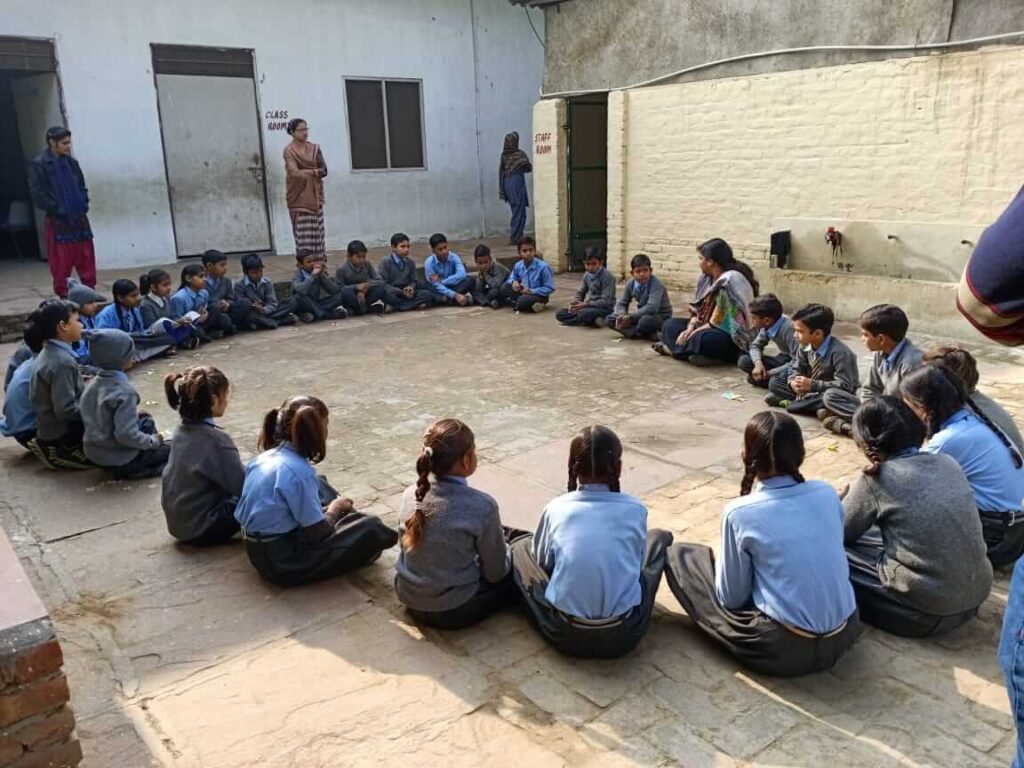
My experience of meeting a bunch of Young Environment Lovers in Arunachal Pradesh
Location: Lower Dibang Valley, Arunachal Pradesh, India.
“Jannat[Heaven]” had always been commonly associated with the picturesque landscapes of Kashmir, but I had found my ‘Jannat’ in Arunachal Pradesh. The striking beauty and peace were like nowhere I had ever experienced. Being mesmerized by the beauty all around, I did not realize when I had reached the small school in Lower Dibang Valley that was to be my stop for the next few hours. The location was breathtaking, the beautiful Deopani river flowed close by and that was a sight to behold.
The most refreshing aspect was the simplicity and straightforward nature of locals. Their blunt talk and rustic living was good detox after a heavy dose of city life. Pleasantly, the primary students I met had the same traits as their elders. Unlike us city folks, where all the emphasis is on having a balanced view, these uninhibited, clear and joyous children were a dose of positivity and hope.
Here I am sharing my positive takeaways and bits of conversation which have convinced me that the future holds a generation of responsible and thoughtful individuals:
1. Astonishing knowledge of plants(specifical herbs) at such a young age.
This fact depicts the role environment and surroundings play in the development of a child. Since these children had been brought up around flora and fauna, their knowledge of plants to treat small ailments was amazing. Sunka, a Grade 1 student would say to me:
“My naba(grandfather) uses ‘Chiraita’ water everyday, it helps in cleaning his blood and fever also stays away. I get it for him everyday morning before school. “
They gave me numerous examples of herbs like Brahmi and many others(which I had never heard of!) along with how they help in keeping us healthy. Their teacher said that since many of these kids are from a tribal backgrounds, they have seen these herbs being used extensively and hence are more aware and appreciative of the nature around them.
Comparison of the above with children in an urban environment could be an interesting exercise. I am not qualified to go into the depth of how it affects a child, but surely ‘Concrete Jungle’ and ‘Natural Jungle’ would affect children in different ways. Would love to know your views on the same in the comments below.
2. Their Ideas of Sustainable Development
Another Grade 1 student, Izumi said:
“There are more people here now, more smoke of cars. It was clean before.”
The apparent reference was to the Bhupen Hazarika Setu that made it easy to commute to Arunachal. One argument could be that better connectivity will lead to better supplies and facilities. But the other aspect is unchecked tourism and irresponsible travelers from nearby states, which has impacted the quality of life for the locals. When asked for a solution, the same child innocently said:
“Make the bridge narrow, less people will come”.
I was surprised that he realized that bridge was necessary for them too and narrowing it was better than closing it.
Read the article about Bhupen Hazarika Setu here
Makes me realize that not all development is a good development. Having said that, we hear so much about sustainable development and maintaining ecological equilibrium with development. But, is it actually practiced?
3. Responsibility towards Society.
Regular social service is a habit here in every school. From the smallest kid to the eldest, they all contribute to cleaning their surroundings and going to nearby areas to clean and maintain the environment. This is a compulsory activity in schools, but the enthusiasm in kids for it was pleasant to see. They were proud of the bounties that nature has bestowed upon them. I wanted to witness this activity firsthand but they did not have any scheduled on that day.
Many of these children come from far to attend schools, which is even more difficult in the rainy season which stays for almost 6 months in the state. This had made these kids patient and made them value the education they are getting. They do not take it for granted and realize the hardships parents face to send them to school.
Their gratitude towards their family and schools was eye-opening. While we in cities, take so much for granted, these kids realized the struggles at such a young age. This would surely hold them in good stead for their future.
Such experiences leave a long-lasting impact, the importance of nature and the environment had never dawned upon me like this before. Please drop in your comments and suggestions below and hit like if you enjoyed reading it.








